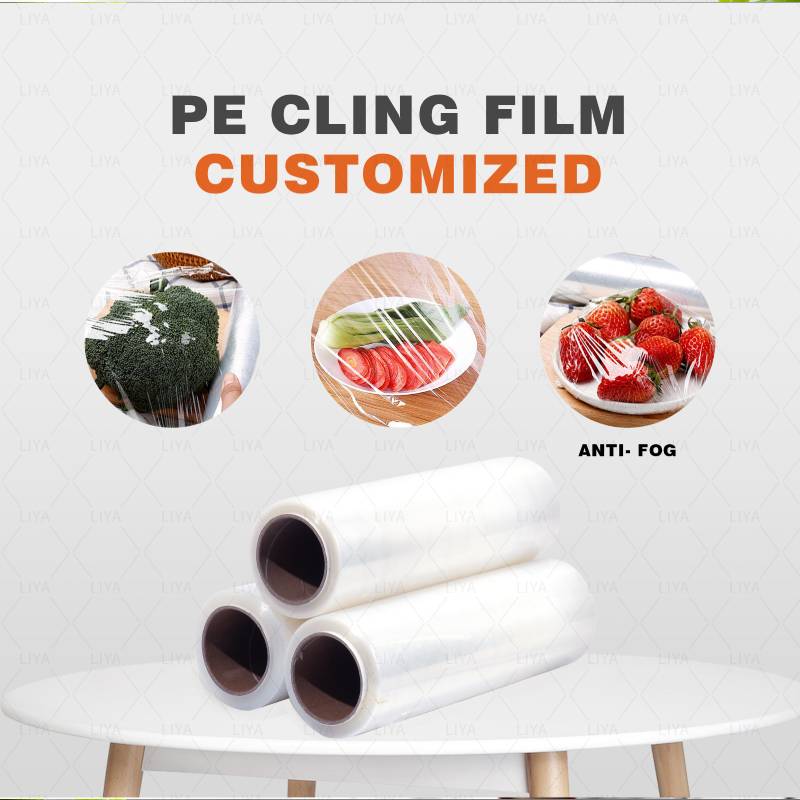Eco-Friendly Food Bin Liners Made from Compostable Materials for Sustainable Waste Management
Embracing Compostable Food Bin Liners A Sustainable Solution for Waste Management
In our rapidly evolving world, where environmental concerns are becoming increasingly pressing, innovative solutions are paramount. One such solution that has been gaining traction in recent years is compostable food bin liners. These liners represent a significant step toward more sustainable waste management practices, helping households and businesses manage organic waste without contributing to the long-standing issue of plastic pollution.
What are Compostable Food Bin Liners?
Compostable food bin liners are specifically designed bags made from organic materials that break down into natural elements in a composting environment. Unlike traditional plastic liners that can take centuries to decompose, compostable liners are engineered to be broken down by microorganisms when exposed to the right conditions, turning waste into nutrient-rich compost for gardens and farms.
These liners are made from materials such as starches, vegetable oils, and other bio-based sources. They are certified by various organizations, ensuring they meet specific composting standards, such as the ASTM D6400 in the U.S. or the EN 13432 in Europe. This certification guarantees that the products will decompose in commercial composting facilities and, under the right conditions, will not leave behind toxic residues or microplastics.
The Benefits of Using Compostable Food Bin Liners
1. Reducing Plastic Pollution One of the most significant benefits of compostable liners is that they help reduce reliance on traditional plastic liners. Single-use plastics are a major contributor to environmental pollution, as they can persist in ecosystems for hundreds of years. By switching to compostable options, households can significantly decrease their plastic waste footprint.
2. Simplifying Organic Waste Disposal Compostable liners make it easier to collect and dispose of organic waste, such as food scraps and yard debris. They are durable enough to handle moist waste without tearing, and the entire liner can be thrown directly into the compost bin, simplifying the cleanup process. This encourages people to compost more effectively, leading to increased organic waste recovery.
compostable food bin liners

3. Enhancing Soil Health When composted correctly, the materials in food waste, combined with compostable liners, can create nutrient-rich soil amendments. These products improve soil structure, help retain moisture, and provide essential nutrients for plants. This not only benefits home gardeners but also aids commercial agricultural practices, leading to more sustainable food production.
4. Encouraging Sustainability Using compostable liners can contribute to a broader culture of sustainability. When consumers choose products that align with their environmental values, it promotes awareness and encourages others to consider sustainable alternatives in their own lives. This collective shift can lead to significant changes in waste management practices at the community level.
Challenges and Considerations
While the benefits of compostable food bin liners are compelling, there are challenges to consider. First, consumers must be aware of the difference between compostable, biodegradable, and traditional plastic products. Misunderstanding these terms can lead to improper disposal and contamination of composting systems.
Second, compostable products require specific conditions to break down effectively. Not all composting facilities accept compostable liners. If they end up in a landfill, they may not decompose due to lack of oxygen and moisture. Hence, it is essential for users to know the local regulations regarding compostable waste and to seek facilities that accept these products.
Lastly, production of compostable materials often requires agricultural inputs, which can have their own environmental costs if not managed sustainably. It's critical to choose brands that prioritize ethical sourcing and sustainability in their supply chains.
Conclusion
Compostable food bin liners are poised to play a crucial role in transitioning toward more sustainable waste management practices. They offer a simple, effective solution for reducing plastic waste while enhancing composting efforts in homes and communities. By embracing these alternatives, we can contribute to a healthier planet, promote soil vitality, and inspire a culture of sustainability. As consumers, making informed choices about the products we use can significantly impact our environment, leading to a greener future for generations to come. The shift toward compostable food bin liners is not just a trend; it’s a necessary step toward ecological responsibility and environmental stewardship.
-
The Best Uses for Small Trash Bags in Daily LifeNewsJul.01,2025
-
Stylish Reusable Grocery Bags TrendsNewsJul.01,2025
-
Shipping Advantages of Using Bubble Envelopes BulkNewsJul.01,2025
-
How Compostable Mailing Bags Reduce Environmental ImpactNewsJul.01,2025
-
Environmentally - Friendly Bulk Poly MailersNewsJul.01,2025
-
Eco Friendly Custom Laminated Tote BagsNewsJul.01,2025
-
Have the freedom of customizing your custom mailers any way you want! Our dedicated packaging support will help deliver you the mailing experience you need to elevate your shipping experience to the next level! Start making a strong impression on your customers and stand out from your competitors! -
LIYA uses high quality raw materials which directly purchased from large enterprises domestic and overseas such as PetroChina, Sinopec, Sabic, Equate, ExxonMobil, Dow Chemical, Total, and Borouge, ensuring the price advantage and quality of the raw materials. -
LIYA uses high quality raw materials which directly purchased from large enterprises domestic and overseas such as PetroChina, Sinopec, Sabic, Equate, ExxonMobil, Dow Chemical, Total, and Borouge, ensuring the price advantage and quality of the raw materials.





